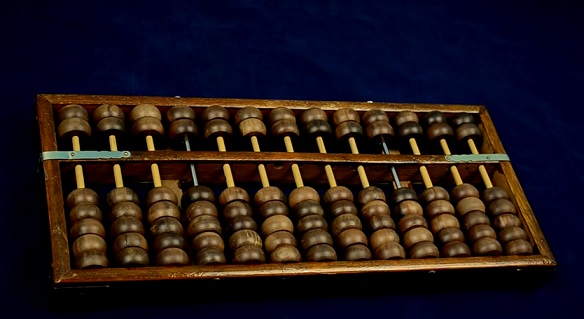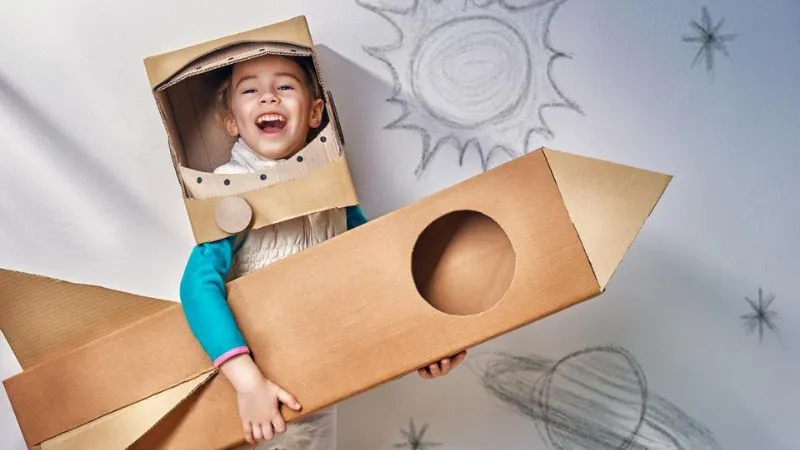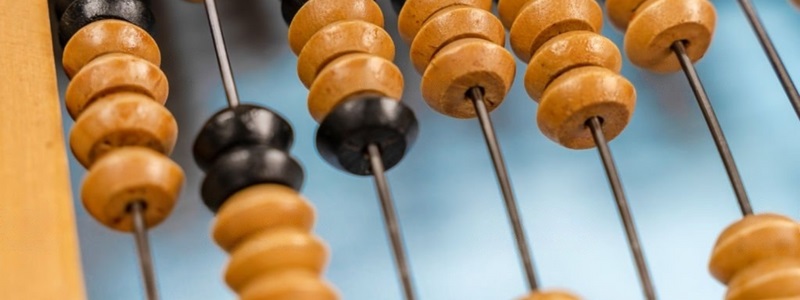The world’s first civilization, “Mesopotamians” invented a list of gadgets. They also started using the abacus between 2300 BC to 2700 BC. Mesopotamians made it for basic arithmetic operations and mathematics, but today children use it for learning math at an early age. This is one of the basic benefits of abacus. Using an abacus can play a primary role in daily life. It impacts our cognitive development, creates new neural paths, enhances imagination ability, and so on.
However, the abacus has a long history, and some claim it was the first computer of ancient times. Modern day computing system is based on the abacus, and robotic algorithms depend on this ancient revolutionary invention. Learning an abacus can be very beneficial for children. It can help them think better, perform complicated tasks and increase their problem-solving capacity. In this guide, I will discuss the benefits of an abacus and why children should use it. Let’s begin the journey!

Table of Contents
- 10 Benefits Of Abacus In 2024
- 1. Better Cognitive Development
- 2. Improves Focus Span
- 3. Strong Memory – Benefits Of Abacus For Babies
- 4. Enhanced Imagination
- 5. Better Listening And Observational Skills
- 6. Increases Self-Confidence – Benefits Of Abacus For Adults
- 7. Amplify Speed And Accuracy – Benefits Of Abacus For Preschoolers
- 8. Boosts Creativity
- 9. Reduces Stress – Benefits Of Abacus And Vedic Maths
- 10. Enhances Gross Motor Skills
- Benefits Of Abacus Math
- Benefits Of Abacus Classes
- How Abacus Is Helpful For The Brain – Benefits of Abacus
- Conclusion – Benefits of Abacus
- FAQs | Frequently Asked Questions
10 Benefits Of Abacus In 2024
The abacus is divided into two parts, upper and lower. Each part has a division with a bar. It is used for multiplication, subtraction, addition, and other basic calculations. Using an abacus is super convenient and has so many benefits. Here are the 10 major advantages of learning an abacus.
1. Better Cognitive Development
A child is born with a tiny brain, and after opening his eyes, he starts learning things happening around him. In such conditions, the brain develops the power of thinking, reasoning, problem-solving, and memorization. The child learns all these daily life tasks by mimicking people around him, like parents, siblings, and peers. Research has proved that children learn reasoning and thinking skills at preschool age. Everything from body movement to dealing with emotions is part of cognitive development.
You can enhance development by teaching your child the rules of the abacus. This way, the child will start understanding complicated thinking like addition and other calculations. Children are efficient learners, but you cannot teach them something before the age limit. Because a child possesses an incomplete brain and with the passage of time, his brain will grow different parts like the frontal lobe (cognitive function area) or occipital lobe (area for vision and involuntary actions).
You can trouble your child if you try to teach her something above her understanding capacity. That is why experts have divided the age into different stages and informed about their limitations. You can find multiple age divisions, but here is an authentic one.
- Sensorimotor Stage ( Birth to 2 years): In this stage, the baby learns basic behaviors like eating, drinking, walking, and speaking. You should not teach abacus or anything academic at this stage. The child is unable to think logically. Just teach names or different materials in this stage.
- Preoperational Stage (2 to 7 years): In this stage, you should start educating some calculations on the tool. You can also teach abacus after 6 years but do not explain the complicated numbers. The logical abilities develop after 6 years.
- Occupational Stage (7 to 12 years): This stage is different from others, and children can understand math accurately. Teaching an abacus is beneficial at this age, and the child will also perceive some complicated calculations. Your child is able to use logical reasoning partially but cannot perform complicated abacus calculations.
- Formal Operational Stage (12 to onward): This is the perfect age for complex abacus calculations. At this age, the child uses logical reasoning in daily life and understands all the tricky functions of the abacus.
Do not try to teach difficult abacus calculations to the child; otherwise, you will waste energy and time. Start telling step by step and appreciate their after every success. Abacus could be challenging for a 7 year old kid, so do not rebuke in case of a mistake. Encourage failures and provide freedom to commit mistakes.
2. Improves Focus Span
Children are more creative as compared to adults, and their focus span is better than ours. This is because of their daily activities and gaming. Abacus requires 100% concentration while solving the problem. If children learn abacus, it can enhance their focus ability. Basically, their brain area, which deals with focus and attention, is better than adult people’s. So they can concentrate on a task for hours. If you provide an abacus, they can prolong the concentration span.
ADHD is a common attention disorder in kids. According to research in 2017, every 1 in 150 children suffers from serious ADHD. A kid tries to focus on a task but is unable to complete it because of a short attention span. But an abacus can help the sufferer. It will enable kids to focus on multiplication or addition for a short period of time. And over time and practice, their attention span will improve from seconds to minutes.
3. Strong Memory – Benefits Of Abacus For Babies
The memory we use in routine work is called working memory. It is part of short-term memory and is based on milliseconds to seconds. For example, you are drinking tea and reading the newspaper. In this scenario, remembering the news while sipping tea is difficult; this type of memory is working memory.
If you want to prevent your kid from memory problems, you must teach him an abacus. It helps in numbers or digit memorization. The kid will try to memorize the numbers, and it will improve his memory in childhood. It will also enhance his photographic and numerical memory. Research has proved that using an abacus is directly related to the hippocampus (memory area of the brain).
4. Enhanced Imagination
Imagination is the only power that makes us different from animals. The only difference between animals and us is that we can imagine countless things, but their imagination is very poor. Visualization is a skill, and you can improve it through daily practice. According to studies, successful people have more vivid visualization than laymen.
The abacus plays a significant role in building a perfect visualization ability. When a child starts solving the problem, he imagines the bar and counts numbers visually. The kids also imagine numbers in pictures, such as two cows or three elephants. In this way, the abacus improves their imagination ability and helps them visualize vividly.
5. Better Listening And Observational Skills
The brain parts that deal with senses like touch, hearing, vision, taste, and smell develop in the early age to adolescence. Although kids understand simple words, complicated and long sentences are difficult to understand. While an abacus can help the kid for enhancing listening skills. The child listens to the numbers from the teacher while calculating them. Plus, the tool creates new neural paths in the brain area for observation. The kid observes, counts, adds, or subtracts the number and then finds the results.
6. Increases Self-Confidence – Benefits Of Abacus For Adults
They become confident if you appreciate children and provide them with positive feedback after every achievement. The most common anxiety is the fear of the public, and it develops in early childhood. But you can protect yourself from anxiety by introducing an abacus to your children. Encourage them on every success and motivate them in case of failure. Children learn faster than adults if you explain something properly.
7. Amplify Speed And Accuracy – Benefits Of Abacus For Preschoolers
There is an old proverb that practice makes a man perfect. After repeating the same process multiple times, the kid is able to calculate numbers quickly. Plus, daily practice increases the accuracy rate. Learning an abacus will help the kid in logical thinking and reasoning in the future.
8. Boosts Creativity

Math and calculations improve activity in the right brain area, which deals with creativity. No doubt abacus is an interesting tool and teaches so many different things. Abacus unlocks the visualization and imagination areas of the brain, which plays a primary role in creativity. That is why it is one of the best tools for learning new skills. A piece of wood with bars can strengthen your brain and upgrade your psyche energy.
9. Reduces Stress – Benefits Of Abacus And Vedic Maths
Children are fans of entertainment and games. But with the passage of time, a child starts observing society, and other factors contribute to developing anxiety. It can cause depression in childhood, public phobia, or stuttering. You must teach them new games and skills to protect kids from such conditions. Fundamentally, gaming is the ideal option for releasing anxiety and distracting yourself from daily activities. It allows your brain to think differently and release dopamine, the happiness hormone.
On the other hand, when a kid joins the school, hr suffers from separation anxiety. If you do not know about it, separation anxiety is the stress and sadness a person experiences after leaving her beloved one. Well, in this emotional condition, games, and means of entertainment can distract the kid. That is why an abacus is recommended for early school kids.
10. Enhances Gross Motor Skills
It is true that the abacus boosts the psyche energy and cognitive development. But you should also know that it impacts motor skills. When you provide a tool to a pre-occupational stage (7 to 12 years) child, and he moves the bars and beads, it directly impacts the motor skills of the kid.
Benefits Of Abacus Math
Abacus math, also known as the Soroban method, is a traditional way of performing mathematical calculations used for centuries. An abacus is a counting tool made up of beads and rods that can be used to perform addition, subtraction, multiplication, and division.
One of the key benefits of learning abacus math is that it helps to improve mental calculation skills. By using the abacus, students learn to perform calculations quickly and accurately in their minds.
Another benefit of abacus math is that it helps to develop the brain’s cognitive functions. Learning to use the abacus requires concentration, focus, and memory skills. This helps to improve the brain’s ability to process information, which can have long-term benefits for students in all areas of their academic and professional lives.
Benefits Of Abacus Classes
The brief benefits of Abacus Classes are
- Improved Mental Math Skills: Abacus classes help to improve mental math skills in children by teaching them to perform arithmetic operations such as addition, subtraction, multiplication, and division using the abacus.
- Enhanced Concentration and Memory: Learning to use the abacus requires concentration and focus, which can help improve a child’s attention span and memory.
- Fun and Interactive Learning: Abacus classes are typically taught in a fun and interactive way, using games, puzzles, and challenges to engage children and keep them motivated.
How Abacus Is Helpful For The Brain – Benefits of Abacus
After the birth of a child, her brain starts working and creates new neural paths. Each body function, from blood flow to heartbeat and thinking to reasoning, has a particular brain area. But a newly born kid’s brain is completely different as compared to an adult’s. Most brain areas are developed after experiences and observations, such as creative vs. critical thinking or feeling trauma and memorization, etc.

Anyhow, these experiences and observations influence their lives till death. Their learning skills are efficient at an early age, and they understand the information quickly. That is because their tiny brain produces new neurons, the pathways for information. That is why psychologists recommend appreciating children and educating them on unknown skills.
Using an abacus can develop neural pathways, and if the kid practices the learned activity multiple times, it keeps the particular brain area activated for a long duration. In this way, the concerned area we use in the activity enlarges and works better than other brain areas. For example, the hippocampus (memory area), neocortex (thinking area), and right hemisphere ( creative thinking area) are involved in using the abacus. If your kid repeats the activity, these brain parts will work better than others.
Plus, it allows children to use different brain parts properly. Research claims that mathematicians live longer than normal people because they use more brains as compared to others. Abacus is based on numbers and calculations; if the kid uses it, the tool will enhance motor skills, memory, thinking, logical reasoning, creativity, and so on.
Conclusion – Benefits of Abacus
Abacus is an astonishing invention of the past; it still assists programmers in developing advanced software. As well as it is a learning medium for children. Apparently, the tool looks like a piece of wood, but it can teach a lot of skills to your children. Plus, it is still useful in many parts of the world, from Africa to Asia and Europe.
Do not hesitate while operating old technologies; enlighten your kids about them. In this article, I explained the 10 benefits of using an abacus. I also mentioned four stages of growth so you can identify the stage of your kid and lead her according to her psyche energy. I hope you find this article helpful.
FAQs | Frequently Asked Questions
Does abacus increase IQ?
Yes, an abacus is a useful tool that can increase the IQ of individuals. A study concluded that people who used abacus had higher IQs as compared to non-abacus users. Because the equipment increases brain functionality and forces the frontal cortex to work better. Your kids can also use the Horlicks to get an extra boost to your kid’s IQ level.
What is the best age to start abacus?
Abacus has no age limit, so a kid can use it. But it does not mean a year-old kid can solve problems on it. The ideal age of the equipment is 7 years because, at this age, the child starts thinking logically. Before this age, she could not understand logical negotiations, but after 7 years, the kid can perform reasoning tasks.
Does abacus improve memory?
Abacus directly influences the memory area of the brain (hippocampus). This part is responsible for memory production and memorization. An abacus user has better working memory than non-users because of remembering numbers.
Is abacus still useful?
Yes, it is useful even in the age of advanced computers. Chinese, Russians, East Europeans, and Africans use the abacus. The tool is also useful for counting scores in non-electronic games. Additionally, you can also find it in schools for teaching children manual calculations.
- Benefits Of EDI (2024) – Electronic Data Interchange For Modern Business - March 13, 2024
- Benefits Of Daycare (2024) – For Infants & Toddlers - March 12, 2024
- Benefits of Hand Eye Coordination (2024) – Building Skills for Academic Success - March 3, 2024